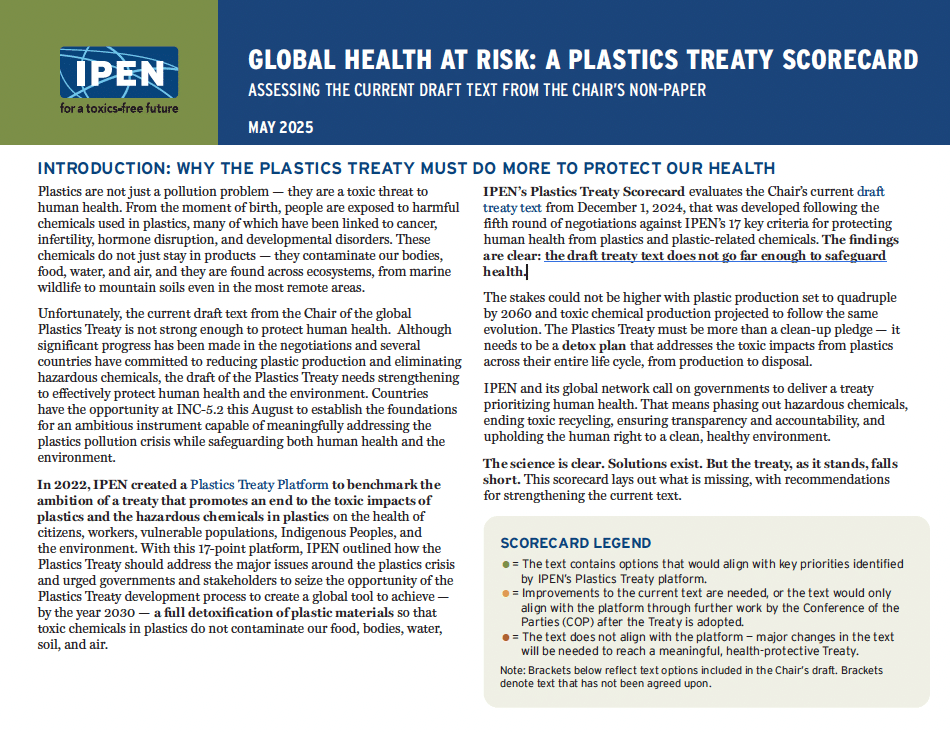Plastics are not just a pollution problem — they are a toxic threat to human health. From the moment of birth, people are exposed to harmful chemicals used in plastics, many of which have been linked to cancer, infertility, hormone disruption, and developmental disorders. These chemicals do not just stay in products — they contaminate our bodies, food, water, and air, and they are found across ecosystems, from marine wildlife to mountain soils even in the most remote areas.
Unfortunately, the current draft text from the Chair of the global Plastics Treaty is not strong enough to protect human health. Although significant progress has been made in the negotiations and several countries have committed to reducing plastic production and eliminating hazardous chemicals, the draft of the Plastics Treaty needs strengthening to effectively protect human health and the environment. Countries have the opportunity at INC-5.2 this August to establish the foundations for an ambitious instrument capable of meaningfully addressing the plastics pollution crisis while safeguarding both human health and the environment.
In 2022, IPEN created a Plastics Treaty Platform to benchmark the ambition of a treaty that promotes an end to the toxic impacts of plastics and the hazardous chemicals in plastics on the health of citizens, workers, vulnerable populations, Indigenous Peoples, and the environment. With this 17-point platform, IPEN outlined how the Plastics Treaty should address the major issues around the plastics crisis and urged governments and stakeholders to seize the opportunity of the Plastics Treaty development process to create a global tool to achieve — by the year 2030 — a full detoxification of plastic materials so that toxic chemicals in plastics do not contaminate our food, bodies, water, soil, and air.
IPEN’s Plastics Treaty Scorecard evaluates the Chair’s current draft treaty text from December 1, 2024, that was developed following the fifth round of negotiations against IPEN’s 17 key criteria for protecting human health from plastics and plastic-related chemicals. The findings are clear: the draft treaty text does not go far enough to safeguard health.
Click below to read and download the Scorecard.
(For best veiwing, download the Scorecard and view in Acrobat or another pdf reader using “2-page View”)
| Attachment | Size |
|---|---|
| 434.41 KB |
